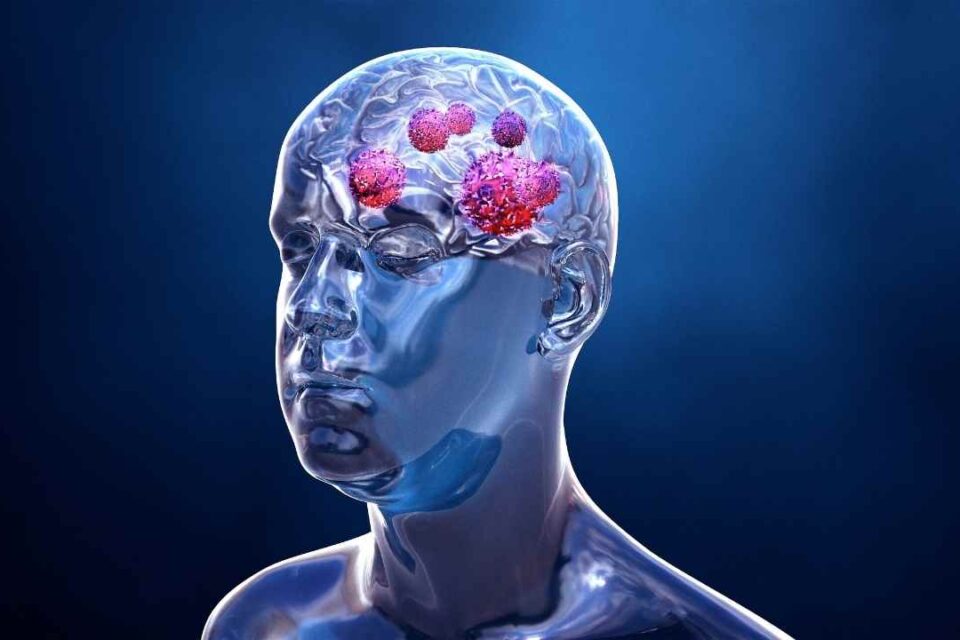Brain Tumor

A brain tumor is an abnormal growth of cells within the brain or skull. These tumors can be benign, meaning they do not spread to other parts of the body and are not life-threatening, or malignant, meaning they can invade nearby tissue and spread to other parts of the body.
Symptoms of a brain tumor can vary depending on the size, location, and type of tumor. Common symptoms include headaches, seizures, weakness or numbness in the arms or legs, difficulty with balance or coordination, and changes in vision or hearing. In some cases, a brain tumor may not cause any symptoms until it has grown to a significant size.
Diagnosis of a brain tumor typically begins with a medical history and physical examination. A neurologic exam may be performed to assess the patient’s memory, vision, hearing, and ability to move. Imaging tests such as a CT scan or MRI may be used to create detailed pictures of the brain and identify the presence of a tumor. A biopsy, in which a sample of the tumor is removed for examination under a microscope, may be performed to determine the type of tumor.
Treatment for a brain tumor depends on the type and location of the tumor, as well as the patient’s overall health and symptoms. Treatment options may include surgery, radiation therapy, and chemotherapy.
Surgery is often the first line of treatment for brain tumors, especially for malignant tumors. A neurosurgeon will remove as much of the tumor as possible, while minimizing damage to healthy brain tissue. In some cases, a craniotomy, in which a portion of the skull is removed to access the tumor, may be necessary.
Radiation therapy uses high-energy x-rays to destroy cancer cells. It can be delivered externally, using a machine that directs radiation beams at the tumor, or internally, using a small radioactive source placed inside the brain.
Chemotherapy uses drugs to kill cancer cells. The drugs may be taken orally or intravenously and can be given alone or in combination with other treatments.
Proton therapy is also another option that is available for some brain tumors. This type of radiation therapy uses protons, rather than x-rays, to deliver radiation to the tumor. Because protons can be targeted more precisely than x-rays, proton therapy may cause less damage to healthy brain tissue.
In addition to the above treatments, there are also a number of supportive care options available to help manage symptoms and side effects of brain tumor treatment. These can include pain management, physical therapy, and occupational therapy.
Brain tumors can be a serious condition, but with early diagnosis and appropriate treatment, many patients are able to lead normal lives. It is important for individuals to be aware of the symptoms of a brain tumor and to seek medical attention if they experience any concerning symptoms. Regular check-ups and screenings, especially for those who have a family history of brain tumors or have been exposed to certain risk factors, can also help with early detection and treatment.
In conclusion, brain tumors are abnormal growth of cells within the brain or skull, it can be benign or malignant. Symptoms vary depending on the size, location, and type of tumor. The diagnostic tests usually include medical history, physical examination, imaging tests, and biopsy. The treatment options are surgery, radiation therapy, chemotherapy, and proton therapy, and supportive care options are also available to help manage symptoms and side effects. Early diagnosis and appropriate treatment can help many patients to lead normal lives. Regular check-ups and screenings are also important for early detection and treatment.





